These biblical queens played crucial roles in the rise and fall of ancient Israel
Some were heretics and others heroes, but these royal women all took center stage in some of the most important stories in the Old Testament.

Beginning with Eve, Hebrew scriptures and the books of the Old Testament provide key insights into ancient attitudes toward the role of women. Wives, mothers, sisters, daughters, and leaders—Sarah, Hagar, Rachel, Leah, and Deborah—are important figures in the journey of the Hebrew tribes that culminates in their people’s settlement in Canaan (modern-day Israel and the Palestinian territories). The women who come after them—when their people unite, divide, and are exiled—have high-profile roles in stories about their struggles as a people. As queens and leaders, these female figures take on larger symbolic meanings, whether as role models, dire warnings, or bastions of hope.
Queen of Israel
Bathsheba, wife to one king and mother of another, is queen during a golden age, the kingdom of David. After Moses leads the descendants of Abraham out of captivity in Egypt, he makes a covenant with God and agrees to follow his commandments; in return the Hebrews will be given the land of Canaan. After facing a barrage of threats, they settle there and eventually unite under a king named Saul, whom tradition places around 1020 B.C. Under him, Israel becomes powerful, creating a conundrum: With kingship comes not only power but also corruption.
(Should women rule the world? The Queens of ancient Egypt say yes.)
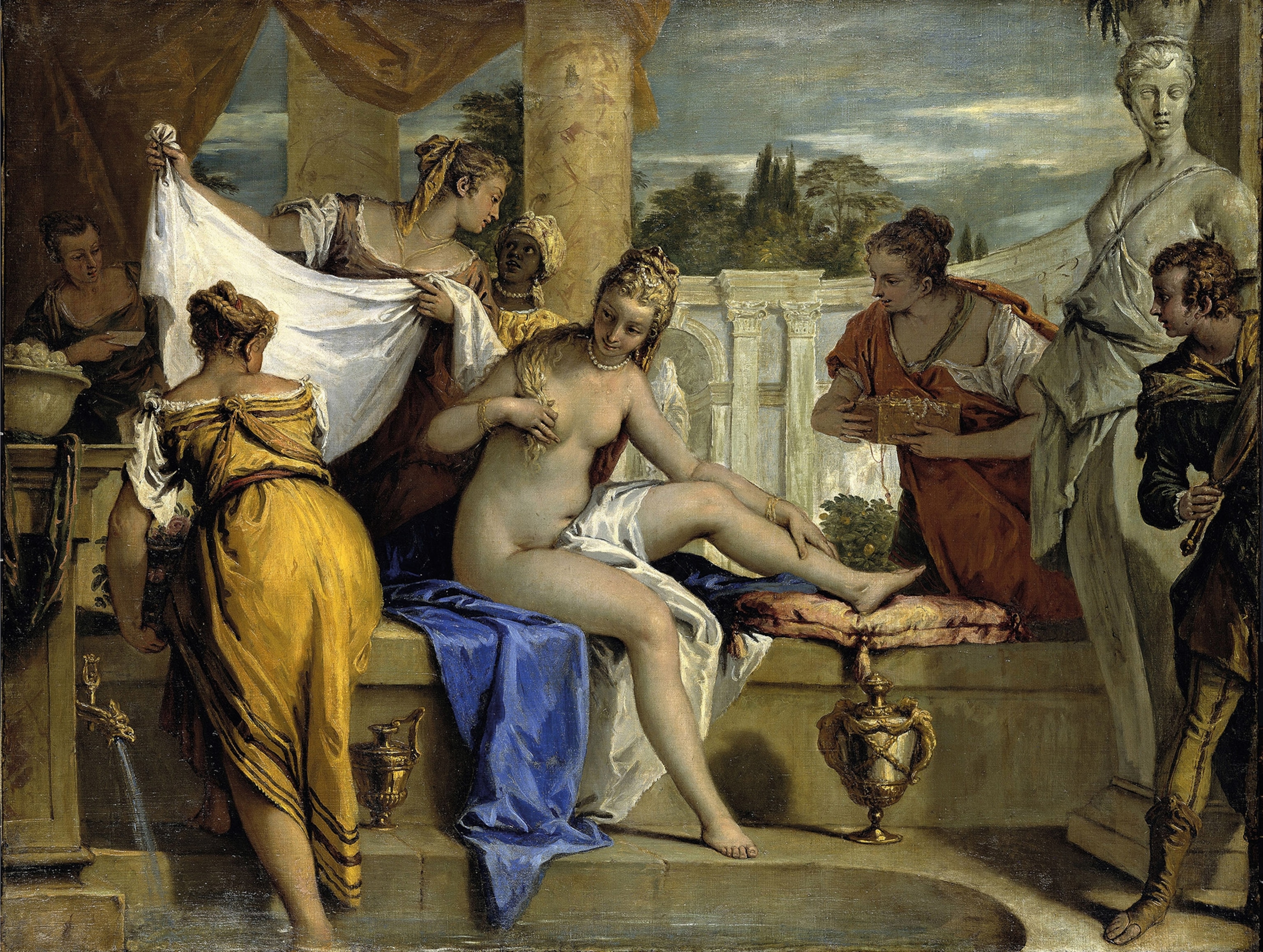
David becomes king after Saul. He is an inspirational leader but is also easily tempted by lust and vanity. Bathsheba is a noble’s daughter, with whom King David becomes captivated after spying on her while she bathes. Despite the fact that she is married to the soldier Uriah, he seduces her and she becomes pregnant. Hoping for his death, David sends Uriah to fight on the front line, where he is killed in battle.
The Old Testament gives no insight into Bathsheba’s feelings; she appears to have little say in the matter. After her husband’s death, Bathsheba weds David and becomes queen. The text is quite clear on YHWH’s view on David’s actions.
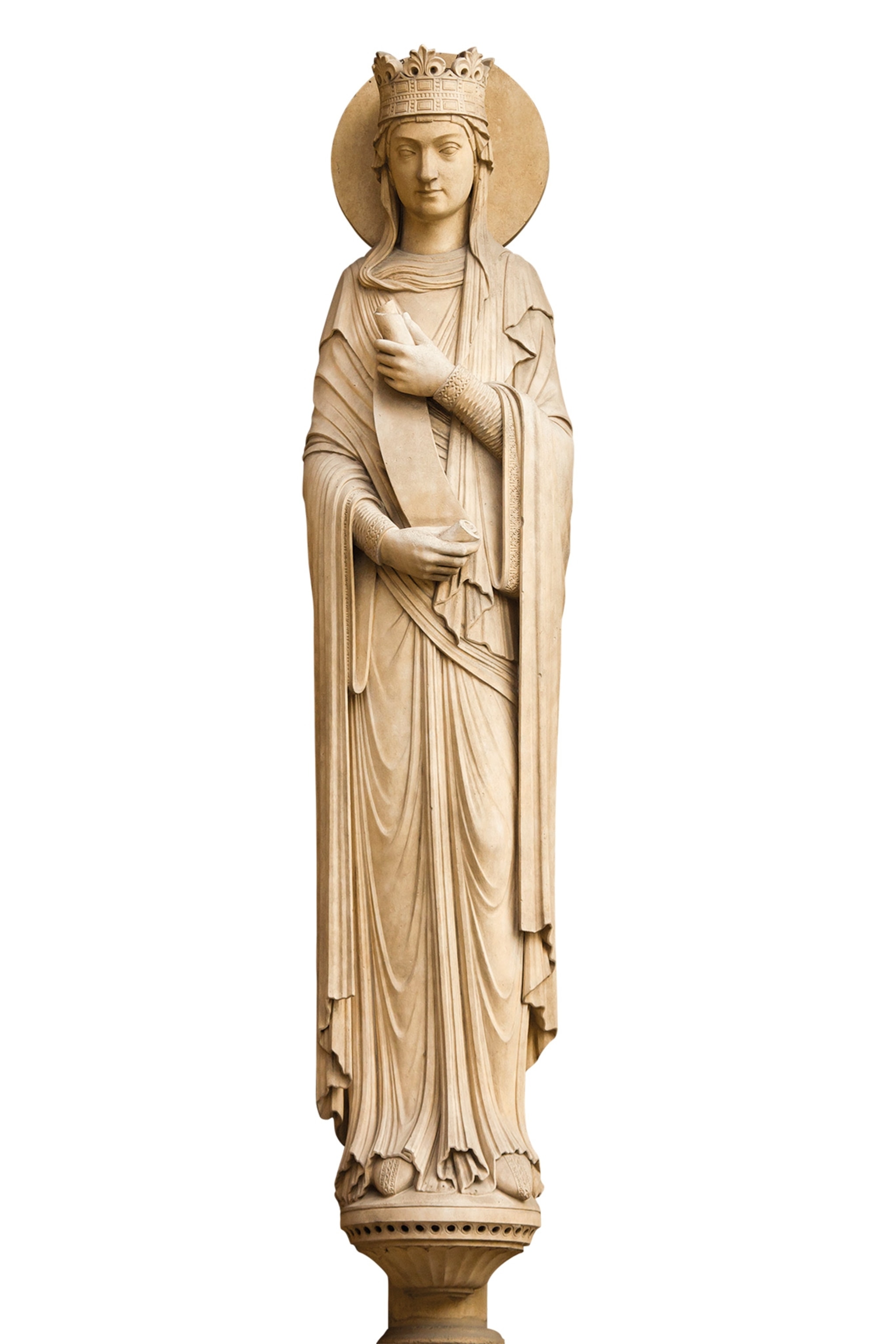
After they are married, David and Bathsheba have a second child, a son named Solomon. To secure his power, David takes other wives, including daughters from each of the 12 tribes of Israel and some from foreign allies. David’s children with them will compete with Bathsheba’s son for the throne. Adonijah, son of Haggith, is David’s oldest living son and has priority in the line of succession. When David is on his deathbed, the Prophet Nathan learns that Adonijah is already proclaiming himself king. At Nathan’s urging, Bathsheba approaches her ailing husband to secure the succession for Solomon. She succeeds and obtains the throne of Israel for her son.

Queens of idolatry
King Solomon’s reign was celebrated for his wisdom and for his ambitious building campaigns, including constructing the Temple in Jerusalem. No sooner had Solomon died, than the Jewish kingdom separated into two: Israel in the north; and Judah in the south, centered on Jerusalem.
King Omri, who ruled the northern kingdom of Israel in the early ninth century b.c., has been attested to by Assyrian sources. He was a powerful regional figure but did not outlaw worship of other gods. Omri allowed the worship of Baal, a Canaanite storm god, alongside the worship of YHWH.
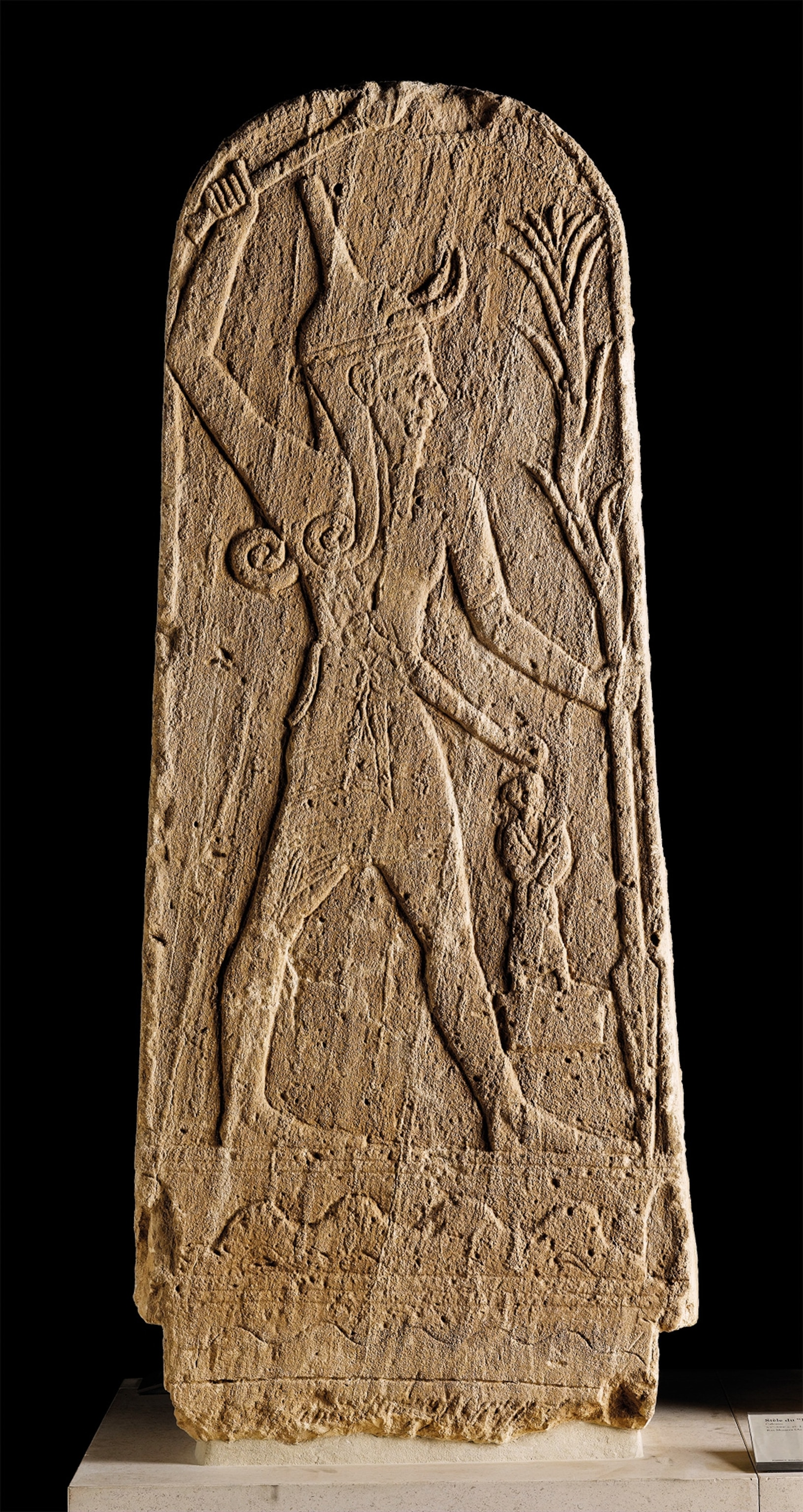
A Phoenician princess—and not an adherent of the Hebrew faith—Jezebel becomes the wife of Omri’s son and successor, King Ahab, who reigned in the northern kingdom of Israel circa 874 B.C. As queen, Jezebel took part in affairs of state, including acquiring land for the crown.
Ahab wants to buy a vineyard adjacent to his palace, but the owner, Naboth, refuses to sell. The vineyard is part of the family inheritance and Israelite law prohibits its sale outside the family. The king is disgruntled, Jezebel hatches a plan, telling her husband: “Do you now govern Israel? Get up, eat some food, and be cheerful; I will give you the vineyard of Naboth” (1 Kings 21:7).
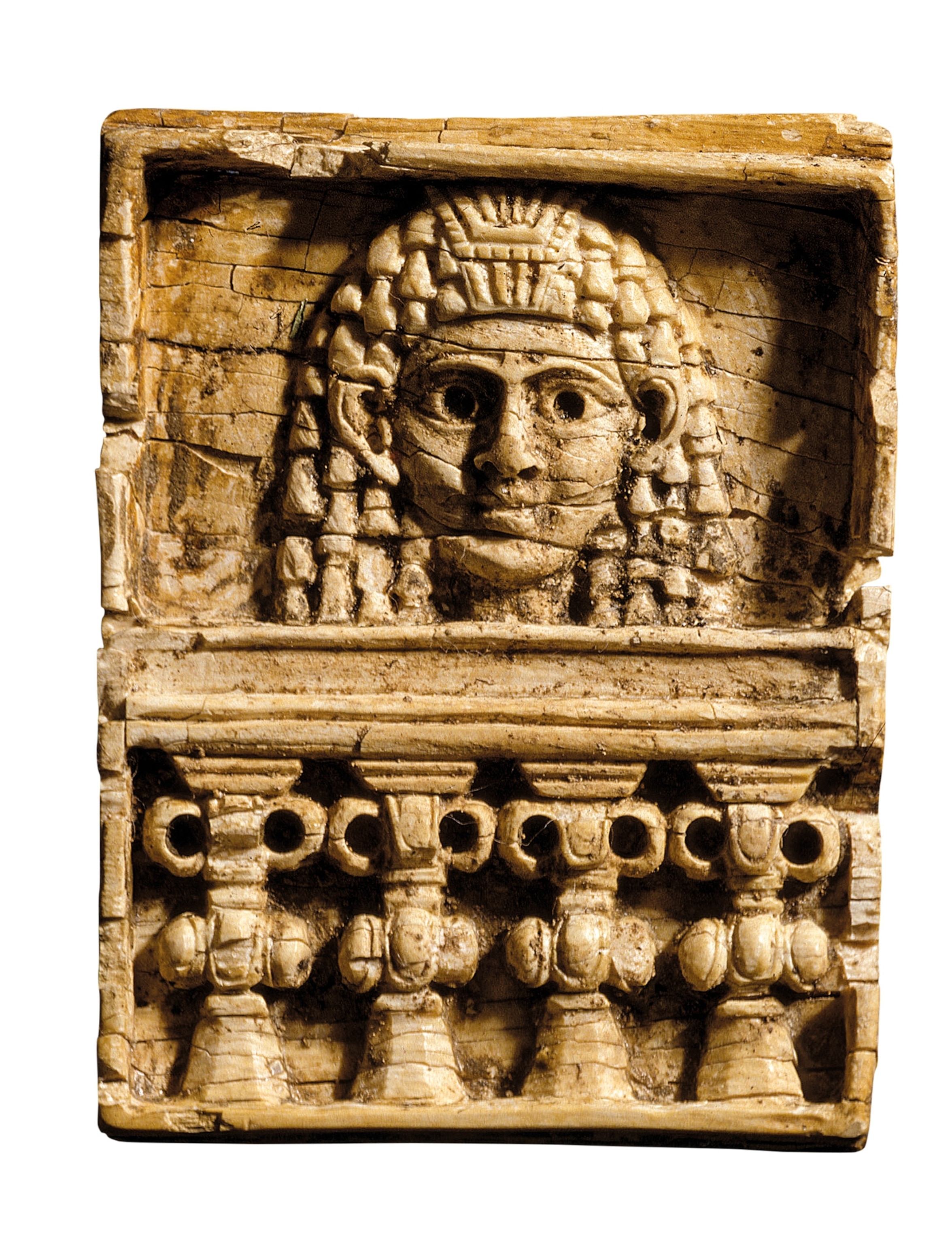
Jezebel writes letters under her husband’s seal and invites Naboth to a banquet, where she instructs two of her men to accuse him of blasphemy. A trial ensues, Naboth is convicted, and he is stoned to death; Ahab secures the vineyard, but the episode is used to show how the northern kingdom has lost its way. Its king allows himself to be led astray by his foreign wife.
The Old Testament authors condemn Jezebel’s religious influence most of all. She supports the cult of Baal, which sparks the wrath of the Prophet Elijah. The prophet publicly challenges the priests of Baal to bring forth rain and lightning from their god. After they fail, Elijah’s appeals to YHWH successfully summon up a deluge, and the prophet orders the execution of the priests of Baal.
A Phoenician princess—and not an adherent of the Hebrew faith—Jezebel becomes the wife of King Ahab of Israel.
When Jezebel learns of Elijah’s actions, she threatens his life. He flees into exile. Before he goes, Elijah delivers one last prophecy to Ahab and Jezebel: “Because you have sold yourself to do what is evil in the sight of the Lord, I will bring disaster on you” (1 Kings 21: 20-21). Ahab dies shortly after in battle. Ahab and Jezebel’s son, Jehoram, succeeds to the throne of Israel but is defeated by a military commander, Jehu. After killing Jehoram, Jehu travels to the city of Jezreel to face Jezebel. The queen is trapped in a tower and then thrown from a window to her death.
(How a pagan queen became a notorious villain in the Bible.)
Jehu’s defeat of Jehoram is believed to be supported by one of biblical archaeology’s greatest treasures: the Tel Dan stela. Discovered in 1993 in northern Israel, Aramaic inscriptions on the ninth-century b.c. fragments commemorate a king’s victory over a “king of Israel” and a king of “the House of David.” The stela is the first archaeological mention of the House of David, making it a significant find. No fragments bearing the names of the specific kings have been found, but scholars believe the defeated king of Israel is Jezebel’s son, Jehoram.
Death of a queen

Jezebel's fate serves as a graphic warning by fulfilling a prophecy of Elijah. Her death demonstrates victory for the true faith of Jehovah against the cult of Baal.
When Jehu came to Jezreel, Jezebel heard of it; she painted her eyes, and adorned her head, and looked out of the window . . . He said, “Throw her down.” So they threw her down; some of her blood spattered on the wall and on the horses, which trampled on her . . . [H]e said, “See to that cursed woman and bury her; for she is a king’s daughter.” But when they went to bury her, they found no more of her than the skull and the feet and the palms of her hands. When they came back and told him, he said, “This is the word of the Lord, which he spoke by his servant Elijah the Tishbite, ‘In the territory of Jezreel the dogs shall eat the flesh of Jezebel; the corpse of Jezebel shall be like dung on the field in the territory of Jezreel, so that no one can say, This is Jezebel’” (2 Kings 9:30-37).
Jezebel’s legacy is perpetuated by her daughter Athaliah. In an attempt to build bridges between the divided northern and southern kingdoms, Athaliah marries the king of Judah (named Jehoram like her brother) and rules as queen. Their son Ahaziah inherits the throne but is assassinated. Following her son’s death, Athaliah then massacres all possible aspirants to the throne of Judah and seizes power herself. Only her grandson Jehoash escapes by being hidden away. He is raised by the priest Jehoiada, who later launches a revolt against the queen.
Athaliah is the only woman to exercise power as queen of Judah in her own right. Like her Phoenician mother, she followed the Canaanite cult of Baal, although she did not suppress worship of YHWH. Her support of the cult earned her the ire of the Hebrew priest and his followers.
Spiritual revolt
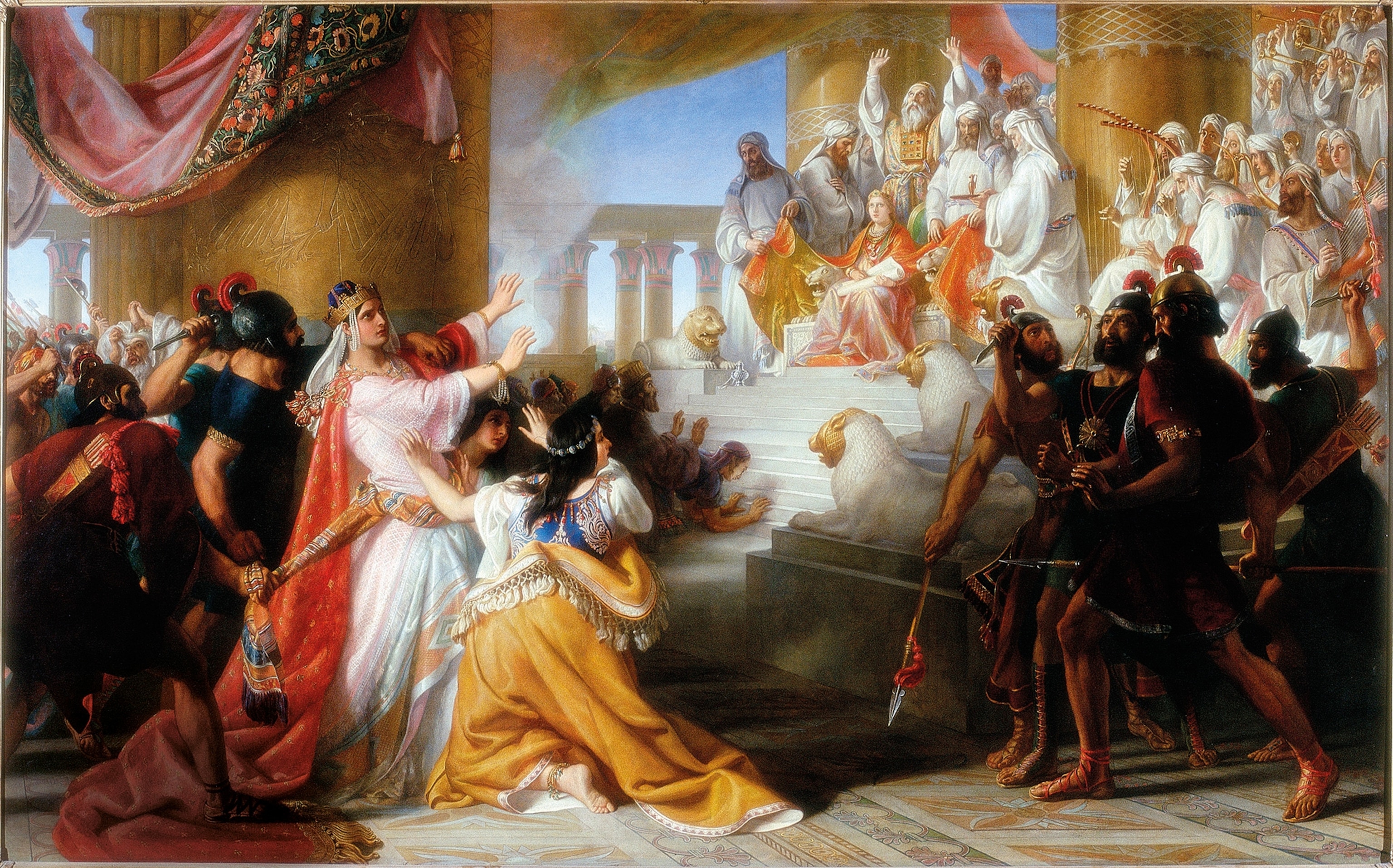
Worship of Baal spurred a revolt against the rule of Queen Athaliah. Led by the priest Jehoiada, it aimed to put Athaliah’s grandson on the throne of Judah.
Then [Jehoiada] brought out the king’s son, put the crown on him . . . they clapped their hands and shouted, “Long live the king!” When Athaliah heard the noise . . . she went into the house of the Lord . . . when she looked, there was the king standing by the pillar . . . Athaliah tore her clothes and cried, “Treason! Treason!” . . . [T]he priest said, “Let her not be killed in the house of the Lord.” So they laid hands on her; she went through the horses’ entrance to the king’s house, and there she was put to death . . . Then all the people of the land went to the house of Baal, and tore it down; his altars and his images they broke in pieces, and they killed Mat- tan, the priest of Baal, before the altars (2 Kings 11:12-18).
Scholars believe that the priest led an insurrection against Queen Athaliah in the later part of the ninth century B.C. Jehoash was crowned in the Temple in the presence of his grandmother before she was executed on the palace grounds. After her death the people destroy the temple of Baal and kill one of his priests.
The stories of Jezebel and Athaliah serve as cautionary tales. The women’s most grievous sin is not ambition but their failure to exclusively worship YHWH. Their support for the cult of Baal turns them into objects of scorn.
Savior queen
During the century that followed Jezebel and Athaliah, the threat to the northern and southern kingdoms came from the outside. The kingdom of Israel was overrun by the Assyrians in the eighth century B.C. Then came Judah’s turn in the early seventh century B.C. when Sennacherib besieged Jerusalem. The Second Book of Kings recounts how God sends an avenging angel to slay his army, and Jerusalem is saved.
Athaliah was the only woman to rule Judah in her own right. Her loyalty to the cult of Baal triggered her downfall.
By 600 B.C. the Assyrians had been defeated by a regional power centered on Babylon. This new power would soon turn its attention to Judah and conquer it. Jerusalem was destroyed by Nebuchadrezzar II in 586 B.C., and the elite of Judah were exiled to Babylon.
Rather than destroying Hebrew identity, the Exile helped shape many central tenets of Judaism. The compilation of the Jewish national story arose from having to “sing the songs of the Lord while in a foreign land”(Psalm 137: 4). Scholars believe that the Books of Kings and other books of the Old Testament were compiled during the Exile to make sense of the trauma that had befallen them.
In 538 B.C. the Persian ruler of Babylonia, Cyrus the Great, allowed the Jews to return to Judah. Many, however, stayed in Babylon, and it is from this community that the story of Esther comes, told in the biblical book that bears her name. Esther’s beauty and wit attracts the Persian king Ahasuerus (possibly King Xerxes I, 486-465 B.C., although scholars have not conclusively associated Ahasuerus with a specific king), and she becomes his queen. She hides her Jewish heritage from her husband.
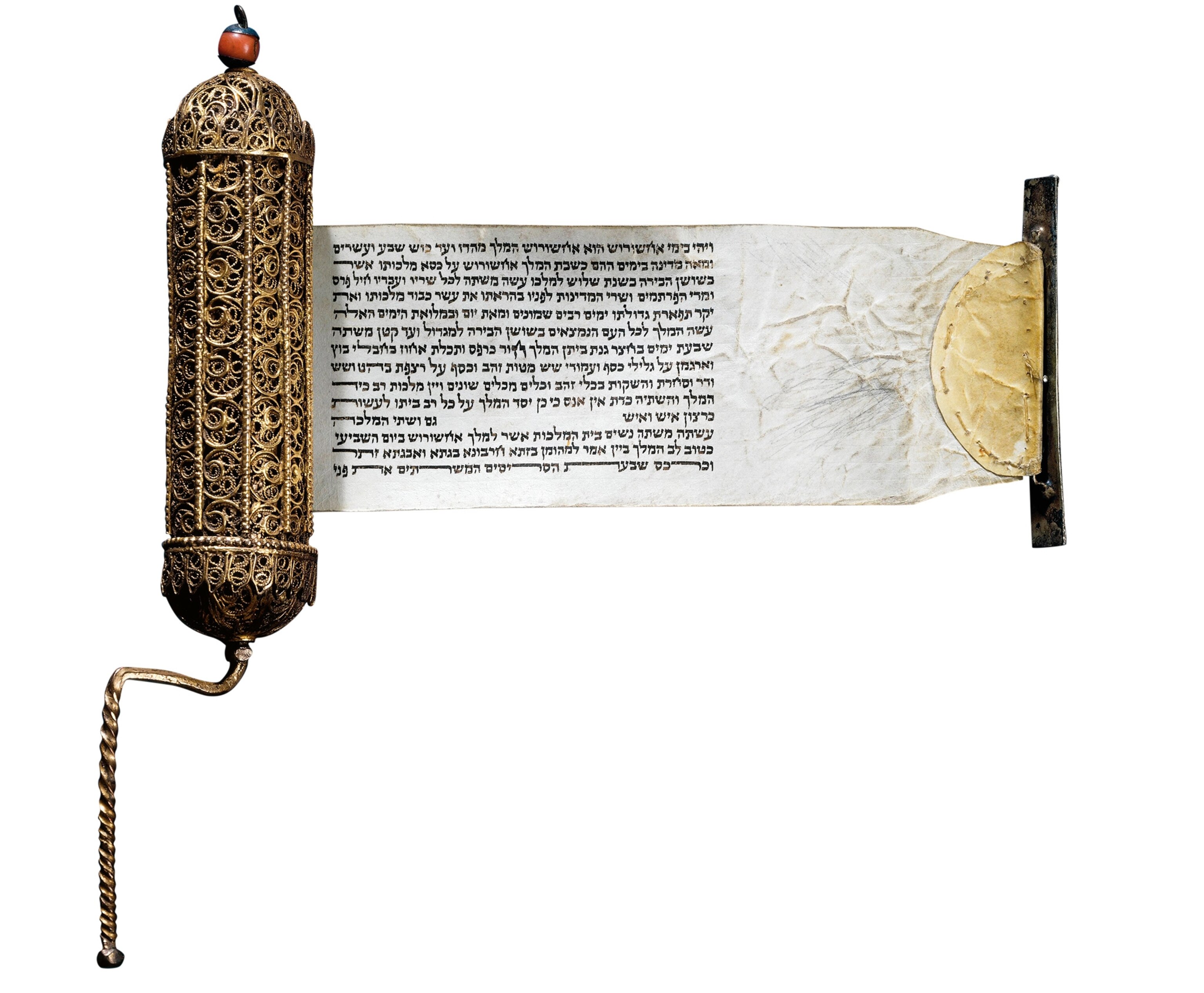
Meanwhile, Esther’s cousin Mordecai, a court official, learns of a plot against the king and thwarts it. He incites the jealousy of the vizier, Haman, who presents false charges against the Jews and convinces the king to kill all the Jews in Persia. To save his people, Mordecai persuades Esther to intercede.
Risking her life, Esther reveals that she is Jewish and asks him to save her people. Realizing that Haman has been disloyal and dishonest, the king orders him to be hanged (on the very gallows Haman had prepared for Mordecai) and then makes Mordecai his new vizier. King Ahasuerus then decrees that Jews in the empire may defend themselves from anyone trying to carry out Haman’s orders on the 13th day of the month of Adar (the day Haman selected to kill them).
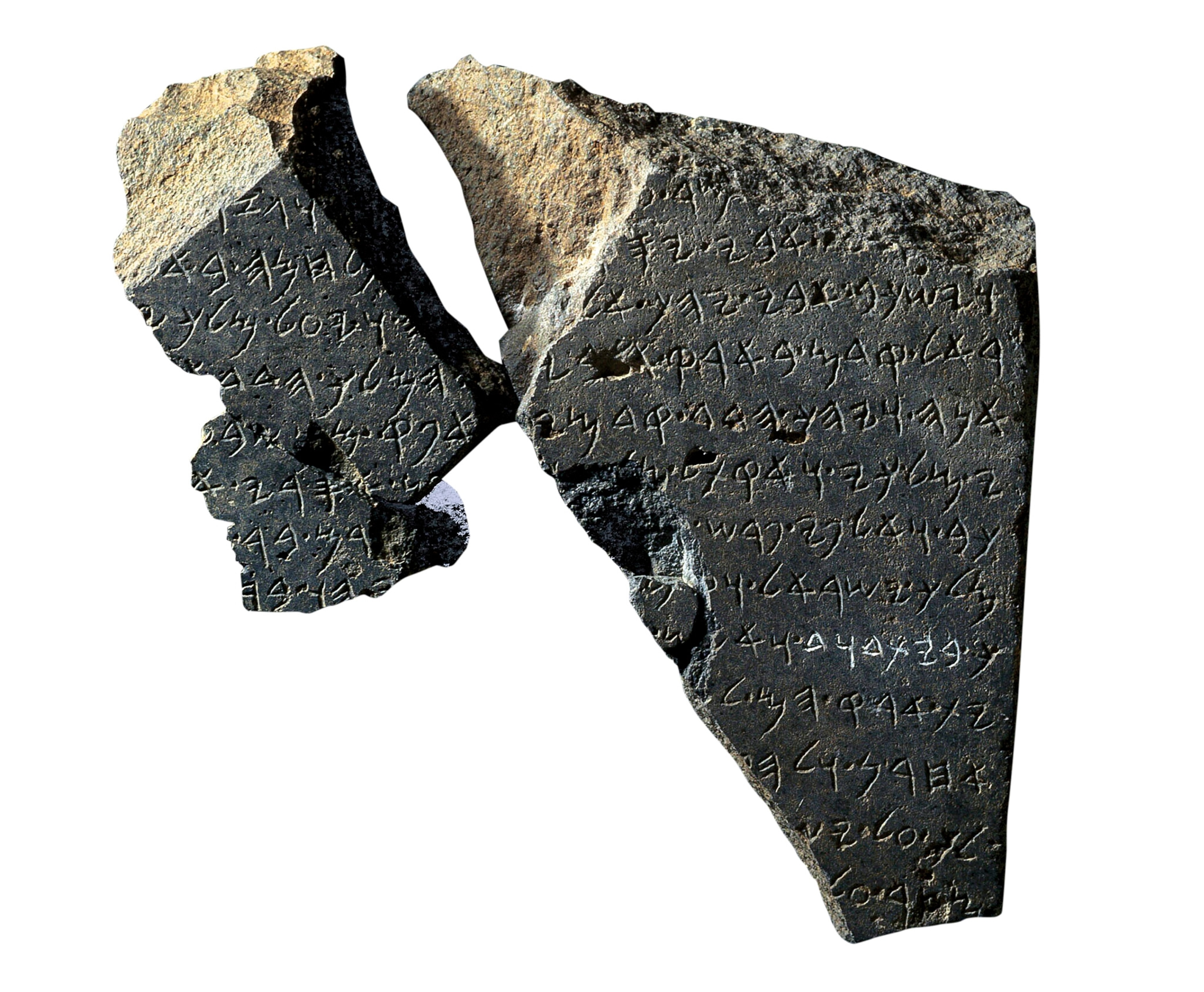
Scholars believe the Book of Esther was written perhaps as late as the second century B.C., much later than other Old Testament books. When compared to other stories, it’s difference is striking, as Esther acts independently without any direct divine intervention. She is guided by her own courage and wisdom. Esther and her courage inspires joy and is the focus of the Jewish celebration of Purim. Every year she is remembered as the resourceful queen who saved her people.
Bathsheba, Jezebel, Athaliah, and Esther are all associated with different eras of Jewish history—from a golden age during the kingdom of David to the turmoil of a kingdom split by internal tensions and facing foreign threats, to the potential dangers of being Jewish in the diaspora. The tales of these women served to remind the Jewish people of their covenant with YHWH, the dangers that came with breaking it, and the duty they had to each other in the wider world.
Guadalupe Seijas is an associate professor in the Department of Hebrew and Aramaic Studies at the Complutense University of Madrid.